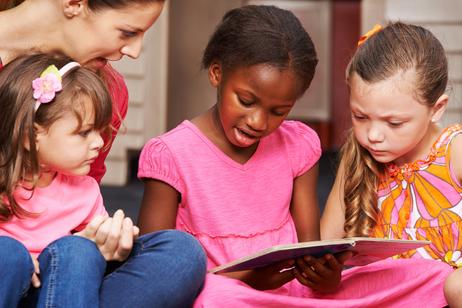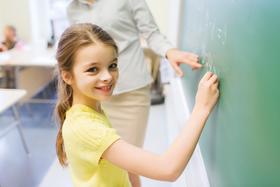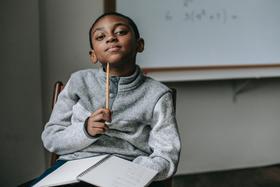Friends come and go over the years. If you think back over the course of your life, you can probably name different friends from different time periods. You may even have certain friends that you rarely see but, when you do, it seems like no time has passed at all. Unfortunately, few of us are lucky enough to still be friends with the people we knew in college, let alone grade school.
Though it is normal for friendships to change over time, the people you spend your time with impact your life in more ways than you realize. Having a good friend by yourself can make the stresses of life seem a little more bearable. Friendships can even cancel out some of the difficulties of life.
In fact, a new study revealed that the friendships children make during the early years of school can actually offset the negative consequences of bad parenting. Keep reading to learn more about the importance of friendships for grade school students and how to cultivate them.
This TEDTalk discusses the importance of childhood friendships.
Why Are Friendships Important for Children?
When it comes to early childhood development, many parents focus on things like a healthy diet, regular exercise, and stimulating activities. Early childhood friendships are easily overlooked as something that has an influence on a child’s development, but they are more important than you may realize.
Paul Schwartz, a professor of psychology and a child behavior expert, suggests that friendship contributes significantly to the development of a child’s social skills. Through friendships, children learn to be sensitive to another person’s viewpoint – they also learn the rules of conversation as well as age-appropriate behaviors.
Some of the other benefits of friendship for children include the following:
- Developing social skills through play
- Improving emotional and coping skills
- Increased sense of belonging
- Reduced stress levels
- Lower risk for anxiety and depression
- Having a support system
Friendships can also have an impact on a child’s academic performance and may even discourage negative and deviant behaviors.
For example, a recent study of 338 kindergarteners in six different public schools revealed that 10% had an oppositional defiant disorder. This condition typically develops during the preschool years and is linked to an increased risk for anxiety, depression, antisocial behavior, substance abuse, and criminal offenses in adolescence and adulthood.
In examining the results of this study, researchers found that more than 70% of the children who exhibited signs of oppositional defiant disorder had been exposed to harsh parenting methods. They also found that children who had friends in school exhibited fewer of these signs.
Study Finds that Friends Can Help Children Cope with Bad Parents
The study referenced in the previous section was published in the journal Development and Psychopathology in November of 2018. Conducted by the University of California San Francisco (USCF), the study confirmed a link between highly critical parenting and defiant, noncompliant behavior in children which may spill over into adulthood.
This study revealed that 10% of kindergarten children exhibited signs of oppositional defiant disorder (ODD). According to the Mayo Clinic, this condition is characterized by symptoms such as the following:
- Angry and irritable mood
- Easily annoyed by other children
- Frequently arguing with adults or people in authority
- Deliberate behavior to annoy or upset others
- Actively defying or refusing to comply with rules
- Acting in a spiteful or vindictive way
- Blaming others for mistakes or misbehavior
Of the 10% who exhibited signs of ODD, more than 70% had been exposed to harsh or highly critical parenting methods. Upon further exploration, the researchers also found that when children who were harshly parented were accepted and liked by their classmates, they exhibited fewer of these symptoms. In fact, this group was found to have 64% lower symptoms than harshly parented children who were not well-liked by their peers.
First author Danielle Roubinov, Ph.D., suggests that “acceptance within one’s peer group creates opportunities for socialization and a sense of belonging that acts as a buffer against the impact of harsh parenting.” In this way, having friendships can actually help harshly parented children learn appropriate behavior to “improve self-regulation, positive emotionality, and responsiveness to warnings about oppositional behavior.”
When children struggle in school, it is often linked to parental behavior. In some cases, the resolution that seems to fit best is to teach or train the parents. Unfortunately, Nicki Bush, an author, and professor at UCSF notes that “there is a significant proportion of families for whom parent training is minimally effective.” The results of this study suggest that, for these situations, ODD is best treated outside the home and away from the family environment.
This video explains how children make friends.
Tips for Helping Your Grade School Student Make Friends
Many adults think back fondly on their times in elementary school where it seemed like the biggest challenge you faced was choosing who to play with at recess. In many ways, childhood is a time of simplicity, but life always finds a way to throw in some challenges. Today’s children are faced with an entirely different set of challenges than you grew up with, but one of the biggest concerns remains the same – making friends.
Some children struggle to make friends while, for others, it seems to come quite naturally. If your child is having trouble making friends at school, here are some things you can do to help:
- Encourage your child to greet other people. Teaching your child to say hello and encouraging them to interact with new people can help develop social skills that can be used to make friends. You can start with members of the family and work your way up.
- Develop social skills in increments. It’s important to start young, but don’t begin by suddenly dropping your toddler off at all-day daycare. Start with small doses of social interaction with family and friends then work your way up.
- Plan playdates at home. When your child is ready for some more extended social interaction, plan a playdate at home where your child will be comfortable. Choose activities that will encourage your child to stay active rather than something that requires a lot of conversation.
- Be present but not overbearing. As you’re working to develop your child’s social skills and friendships, it is important to be there for support, but you shouldn’t be constantly hovering around your child. When you schedule playdates, you should be around but let your child spend time with his friend.
- Talk to your child about friendship. Reading stories about friendship is a great way to teach your child the value of having friends and how to do it. When reading a book, talk to your child about the characters and ask questions to keep him involved.
- Play games with your child. Playing games with your child is not just a fun way to pass the time, it also teaches important lessons about collaboration and taking turns – these are important elements in a childhood friendship.
- Let your child help you around the house. Encouraging your child to help someone else is how he learns to empathize and care for other people. Start by letting your child help you with simple tasks around the house and, if you have multiple children, help his siblings as well.
- Provide a strong example. Children learn by watching their parents more than some parents realize. To help your child learn how to make friends, set a good example by exhibiting friendly behaviors with the people you interact with.
This video discusses the importance of childhood friendships.
Though you may no longer talk to your best friend from third grade or have any idea where your recess buddies ended up, you can’t deny that your grade school friendships had an impact on your life. Not all of the relationships we have throughout our lives are positive but having good friends in grade school could influence your child’s life more than you realize. Take what you’ve learned here to heart and do what you can to help your child create and maintain strong friendships.
Questions? Contact us on Facebook. @publicschoolreview













